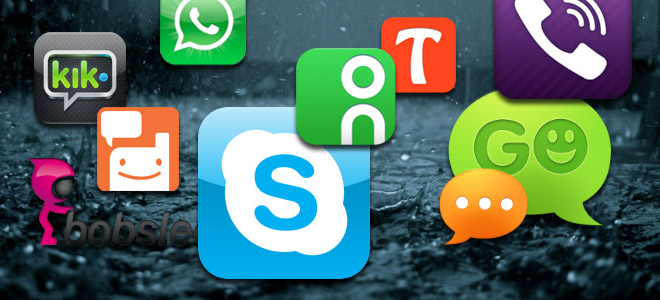OTT not the core business for mobile network operators
Some analysts think the problem is that big companies don’t want to make heavy investments in the field.
Viettel, VinaPhone and MobiFone, the three largest mobile network operators in Vietnam, have launched OTT service into the market.
One year ago, Viettel launched OTT Mocha, when there were numerous similar products in the market. The number of Mocha users has reached 3 million in the last year.
This was described as ‘a nice surprise’, because Mocha had to compete fiercely with other strong rivals such as Facebook Messenger, Viber and Zalo which emerged many years before.
However, 3 million subscribers remain a modest figure compared with the high number of OTT users.

OTT is not the core business for mobile network operators and they don’t intend to consider it a vital service
In early 2015, VinaPhone began its media campaign on VietTalk, its OTT service.
In August 2015, MobiFone started the trial of an OTT app called Halo.
Both VinaPhone and MobiFone have not revealed figures about their subscribers.
Prior to that, in April 2014, BKAV, known in Vietnam as the internet security service provider, officially joined the OTT market with Btalk, where users make calls and messages free of charge. BKAV then stated that Btalk would strive to replace Viber in Vietnam.
As for Zalo, the app created by VNG was introduced in December 2012. To date, it has had 50 million users, equal to the number of subscribers of the largest mobile network operator at this moment.
Why can smaller firms get bigger successes than big telcos? A senior official of the Ministry of Information and Communication (MIC) commented that VinaPhone, MobiFone and Viettel are not under pressure, which forces them to create interesting OTT app to earn money.
“They (large mobile network operators) can earn money through many other services. Meanwhile, content service firms have to create competitive services to exist,” he explained.
VnReview, a technology website, also commented that Viettel’s Mocha, VinaPhone’s VietTalk and MobiFone’s Halo are just considered ones of the hundreds of added-value services and utilities that the mobile network operators are providing.
Mocha, VietTalk and Halo are not expected to bring high turnover like other services. This explains why network operators do not spend money and time to advertise their OTT apps.
Telcos have done well with core telecom services (SMS, calls) and other traditional added value services, while they have not focused on non-traditional services like OTT.
“OTT is obviously not the core business for mobile network operators and they don’t intend to consider it a vital service,” the website said.
Vietnamnet.vn




